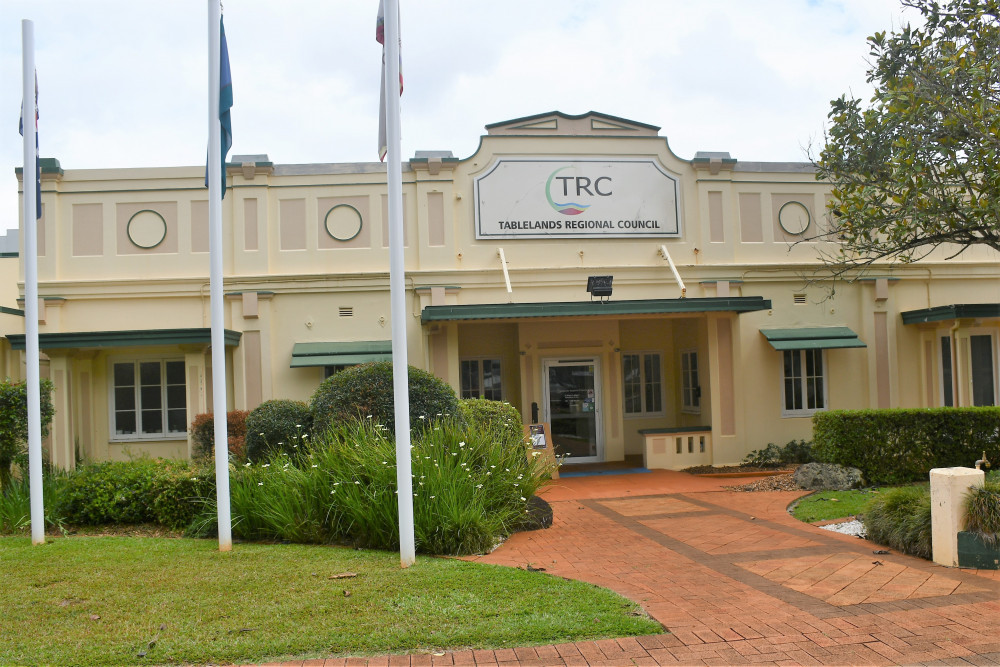General News
27 October, 2021
Review prompts action plan to tackle TRC issues
A RAFT of recommendations will be actioned by Tablelands Regional Council (TRC) after a review to probe into organisational issues plaguing the local government authority was completed.

The council ordered the Benchmarking Study and Organisational Review in March in the wake of a period of “significant instability” which resulted in the resignations of five CEOs since 2014, a large number of complaints about Councillors to the Office of the Independent Assessor, and a belief by elected representatives that the organisation was “obstructionist and incapable of accepting or delivering on the agenda the council wished to pursue”.
TRC last week considered the review and the 27 recommendations to improve the operational efficiency of Council.
Despite the “warts and all” report detailing major concerns from both Councillors and staff, it was tabled in open session, demonstrating that council was intent on being transparent about the results.
The report leaves no stone unturned in detailing the concerns of both councillors and staff and the issues that primarily arose after the 2020 election.
Councillors had described their frustration over the past year at what they perceived to be “management’s reluctance to acknowledge and facilitate council’s legitimate role in directing the affairs of the local government”.
“There was a belief that senior organisational leadership in the year following the 2020 local government elections focussed on confronting rather than collaborating with the new council and that, as a result, the wider organisation had been encouraged to adopt a less than cooperative, and even, derogatory approach to its elected members.”
Addressing the meeting, CEO Gary Rinehart, who was formally appointed in June but has been with council since March as its interim CEO, spoke positively about the report.
“Many of the recommendations made in the review were already well advanced and had been underway even before the report was completed,” he said.
“The relationship between the administration and the council has improved significantly over the past few months and will continue to improve,” he said.
In tackling the issues, the report noted that the “most productive way to repair inter-personal differences would be to find ways to work together on mutually agreed priorities, especially where these involve the challenges of improving outcomes for the whole organisation and the communities it serves”.
The recommendations provided opportunities for a “collaborative effort leading to the emergence of a more mature and mutually supportive culture.”
They include
Reviewing the current Corporate Plan to ensure it truly reflects council’s strategic intentions based on community engagement
The CEO initiating a comprehensive review of current project lists to establish a prioritised program from which projects can be identified and included for funding and council approval
Reviewing operational service levels Continuing the development of a longterm financial strategy
The CEO investigating the discrepancy in the reporting of the asset sustainability ratio in the 2019-20 annual report and unaudited financial statements, correcting the published documents and ensuring consistency with the Queensland Audit Office in the future
Undertaking remuneration benchmarking surveys regularly to evaluate competitiveness in attracting competent and experienced staff
Reviewing the current Values Statement for the organisation, the People and Culture program, the Workplace Plan, and the Workplace, Health and Safety strategy and reporting framework
Investigating the cost and benefit of establishing a Pre-qualified Local Suppliers’ list, and
Improving quarterly and monthly reporting to council including tracking against performance targets.
Crs Peter Hodge, Dave Bilney and David Clifton will sit on a new committee established to oversee the implementation of the recommendations.
COUNCILLORS’ CONCERNS
A negative organisational culture particularly evident at senior management level
The state of Council finances and new Budget formulation
The need for a major upgrade of water/wastewater infrastructure in the near future
Organisational diligence and competence in delivering key projects and decisions regarding procurement
A lack of confidence in information provided in reports, and
The impression of a highcost base for administrative overheads such as information technology and human resources management.
STAFF / MANAGERS’ CONCERNS
Council holding a preconception that the organisation was ineffective and staff were incompetent
Council making illinformed decisions, creating inefficiencies
Council being quick to criticise but slow to offer recognition of effort
Council not adequately considering the consequences of their decisions, and
Some councillors making public statements about sackings and redundancies.



